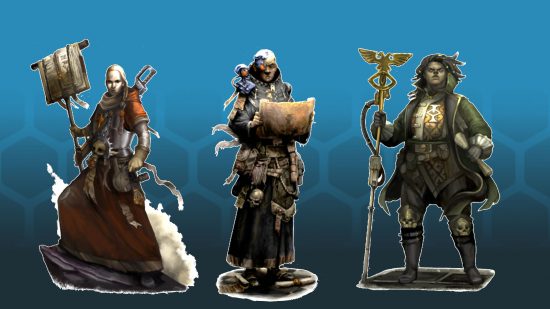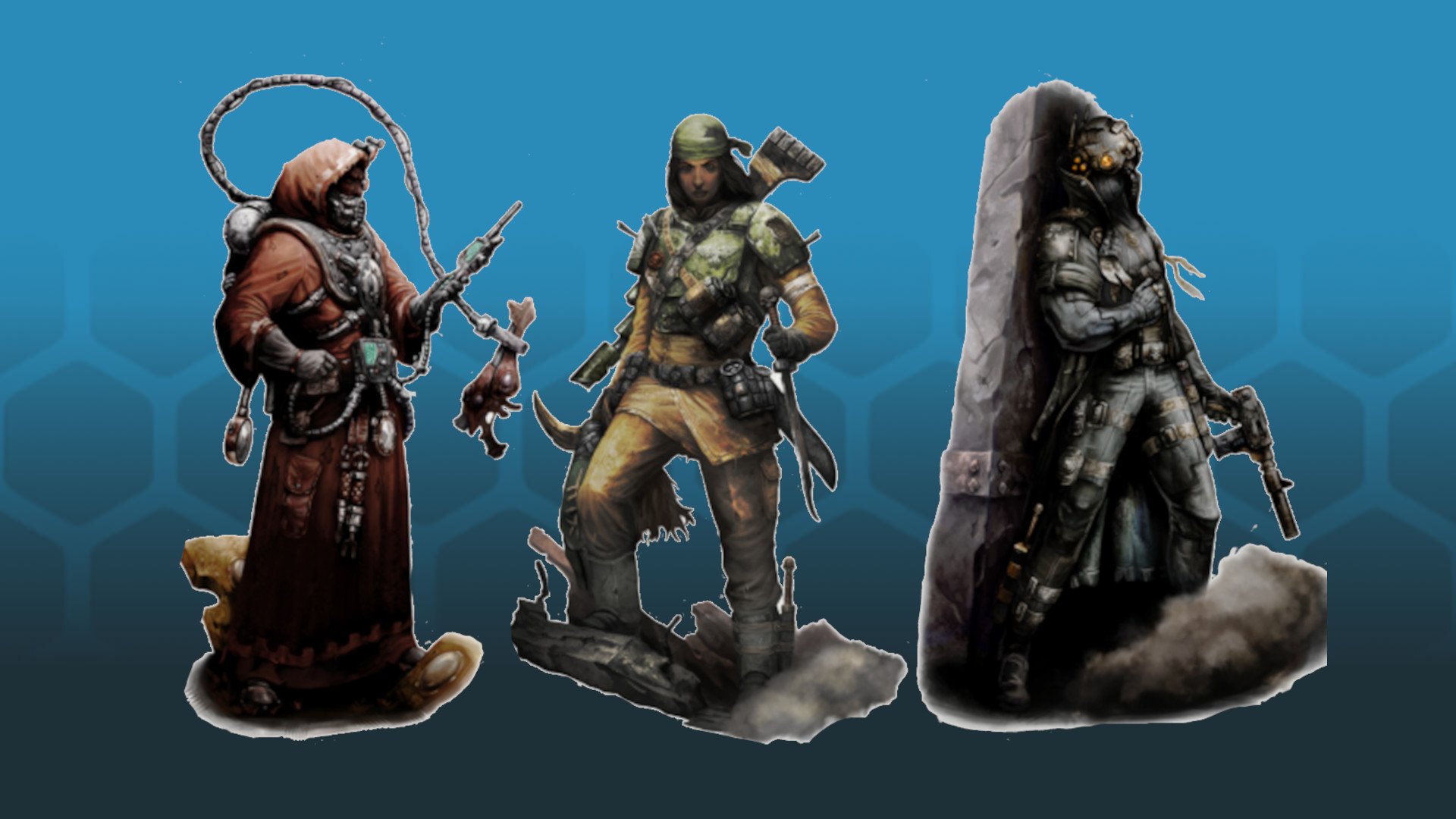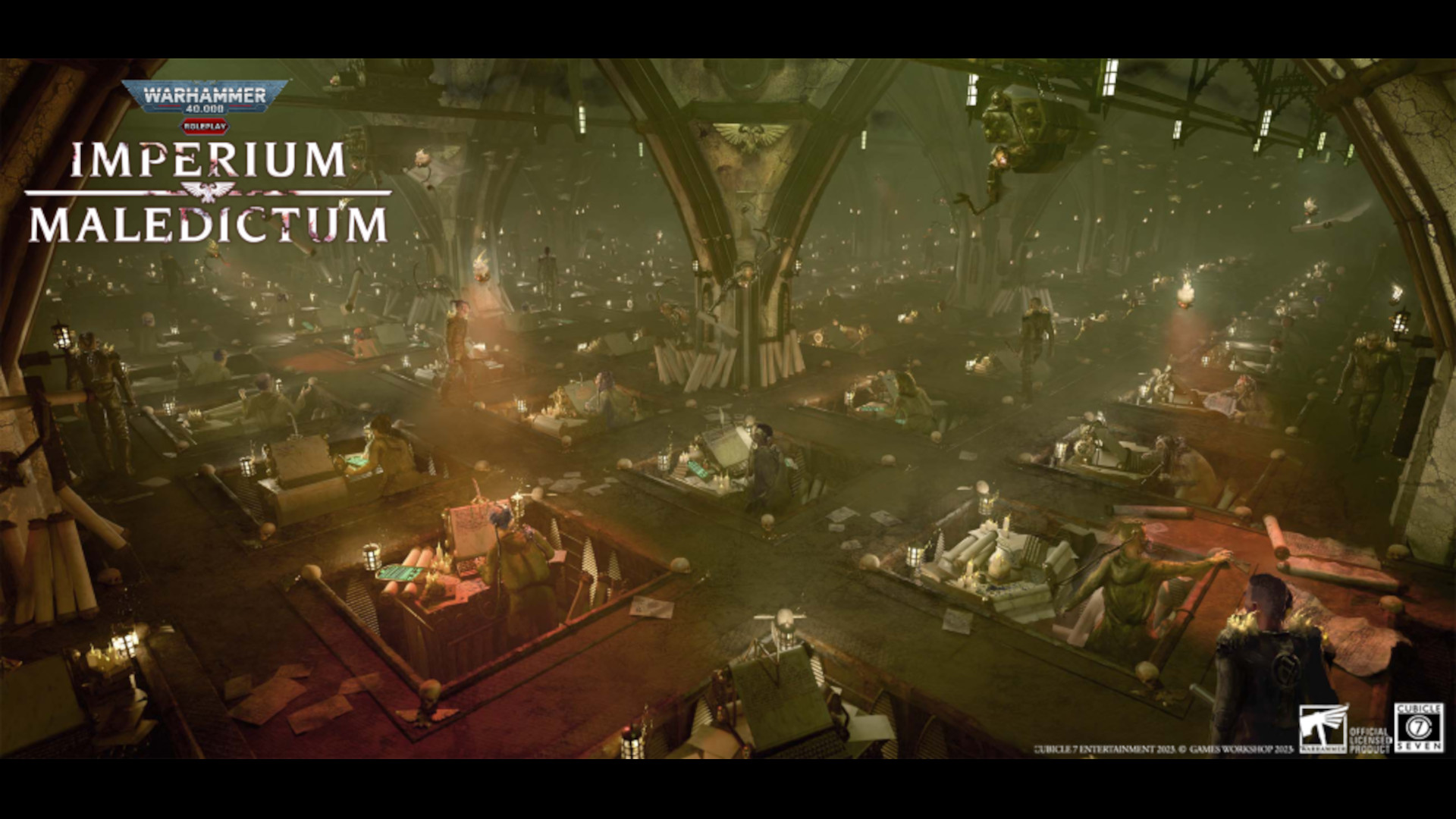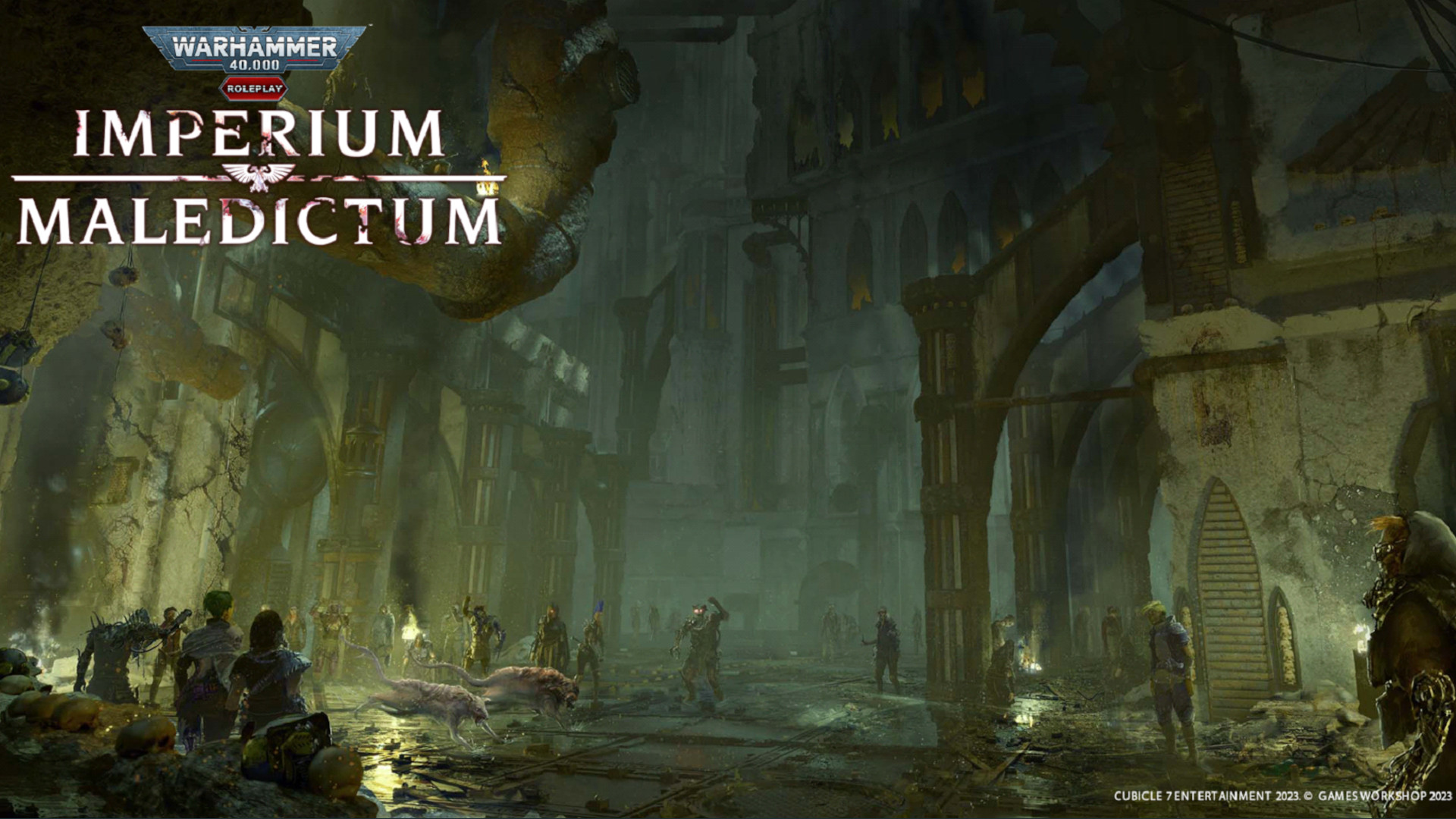The kinds of character you can create in upcoming Warhammer 40k RPG Imperium Maledictum just became a little clearer, as Cubicle 7 has published a preview of the character creation system. A blog post on Friday introduces the Origin, Faction, and Role systems, which it calls “the most formative” steps in creating a character.
While you can choose each of these elements, Cubicle 7 promises that you’ll be able to randomly generate them, and be rewarded with bonus XP. This will be welcome news to fans of old school Dungeons and Dragons, or indeed classic Warhammer Fantasy Roleplay, which gave you the option to role randomly for your character’s career – great fun when you ended up with a party of rat catchers armed only with a candle and a terrier on a string.
The character’s Origin is the place they lived the earliest years of their life. The preview explains that your character’s Origin will provide Characteristic boosts, such as “+5 Willpower for those raised on Shrine Worlds”, and will increase the likelihood of your character being able to join a particular Faction.
That certainly fits with the lore: we know that the Sisters of Battle almost exclusively recruit Schola Progenium orphans to their monasteries. The article doesn’t say whether this will affect all character creation, or just the chances of entering a particular faction when using randomised character generation.
The preview explains that there are 10 Origins in the core book: “Agri World, Feudal World, Feral World, Forge World, Hive World, Shrine World, Schola Progenium, and Voidborn”. With a million worlds in the Imperium of Man, that leaves plenty of scope for expansions to add new Origins.
You’ll then pick your character’s Faction, “the type of drudging toil that would have consumed your life had you not been recruited by your Patron”. According to the preview, the choice of Faction affects your “Characteristics, Skills, Talents, Influence, and starting equipment”.
The corebook will contain nine Factions: “Adeptus Astra Telepathica, Adeptus Mechanicus, Administratum, Astra Militarum, Ecclesiarchy, Inquisition, Navis Imperialis, Recidivist, and Rogue Trader Dynasty.” There will of course be lots of scope to add extra Warhammer 40k Factions in supplement books, but you should probably not expect Space Marines to make an appearance any time soon. Imperium Maledictum has been billed as a grim and gritty RPG, unlike Cubicle 7’s rather more bombastic Wrath and Glory.
Cubicle 7 shared some suitably grimdark artwork for the Recidivist Faction exclusively with Wargamer, and gave us some insight into their place in the universe: “In the worst corners of the Imperium — toxic wastelands or half buried sub-levels that a planet’s rulers have all but forgotten exist — the very dregs of humanity fester”.
It sounds like Recidivists are the lowest of the low, which in Warhammer 40k is very low indeed – hive-scum, outlaws, techno serfs, penal guardsmen – familiar to anyone who’s played spinoff game Necromunda. Cubicle 7 adds: “Such non-citizens scrape a living by graft, violence, and corruption, subsisting on the scraps that fall from above”, saying this can give them “skills and connections that can make them useful to the great and powerful, and all are resourceful by necessity.”
While Origin and Faction cover the experiences and skills your character acquired before entering their Patron’s service, their Role is what they do for their new master. The preview says “Your Role determines a lot about how you will play the game…” adding that it’s “a broad classification of how you serve your group and your Patron” rather than an in-universe title.
Mechanically, the Role will provide a choice of Talents, some equipment, advances in relevant Skills, and Skill specialisms. The preview lists six Roles it says to expect in the core book:
| Role | Description |
| Interlocutor | Communicates well and can “sway others with their words” |
| Mystic | Understands the “mysteries of reality”, and may have a connection to the Warp |
| Penumbra | Master of “stealth and subterfuge”, from “espionage to assassination” |
| Savant | “Scholars, experts or artisans” – they know stuff. |
| Warrior | Expert fighters who might use “any conceivable weaponry”, together with armour and combat expertise. |
| Zealot | Driven by “fanatical faith”, their passion lets them do the “seemingly impossible” – at a cost. |
Lifepath character creation systems in tabletop rpgs have the benefit of tying your character’s abilities to their personal history, giving you a built-in backstory. Random character generation is also a lot of fun, provided you like surprises!
The most infamous lifepath system might be from retro-classic RPG Traveller, where you can actually die in character creation if you push your luck too far! Recently, Warhammer 40k Darktide featured a basic character creation system that determines your character’s voice and AI barks, starting from your character’s homeworld. Choosing Cadia and being shown a drifting asteroid field instead of a planet still hurts.



